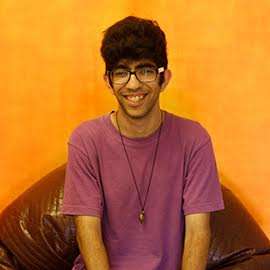A short guide to the probable winners of the economics Nobel

The Sveriges Riksbank Prize in Economic Sciences in Memory of Alfred Nobel has been awarded to 75 laureates since 1969. The prize\'s first recipients were Ragnar Frisch and Jan Tinbergen.
The typical winner is "a 67-year-old man, born in the United States, who is working at the University of Chicago when he wins," according to Maggie Koerth-Baker of FiveThirtyEight.
Lastly, this prize is technically not a Nobel prize. It\'s named after the central bank of Sweden - Sveriges Riksbank (Sweden\'s central bank). The Nobel Foundation isn\'t funding the award, the bank is. The Nobel Foundation doesn\'t even choose the winner.
The Nobel Foundation does list the award on their website and even tracks the winners and promotes the prize but many within the Nobel family have spoken out against it. Also, just like the Nobel Peace Prize, no one has a clue as to who is going to win. Furthermore, insiders haven\'t put any odds on who is going to take home the prize.
Nonetheless, if you\'re interested in the award, the winner will be announced on
Monday
, 10 October. Here\'s a list of some of the contenders, though, after the surprise winner for the peace prize, it could very well be someone no one is thinking about.Let's start with the obvious choice for the prize. Obvious, because on
Thursday
morning, the staff at New York University threw a fastball. They accidentally put up an announcement that the economist Paul Romer - their prized economist - had won and that a talk was being organised. Romer though, quickly dampened the 'premature' celebrations."It is the type of mistake that could have been made in any of the last 20 years," Mr. Romer wrote on his blog. One reason Romer may not get it this year is that last year, the Royal Swedish Academy of Sciences awarded the prize to another growth economist (not exactly, but close enough), Angus Deaton. Deaton won for his analysis of consumption, poverty, and welfare.
Thomson Reuters has an uncanny knack of predicting winners of the prize and the second person on this list candidates is the one they've put their money on. Blanchard won an online "People's choice" poll of experts. Blanchard has contributed to "macroeconomics including determinants of economic fluctuations and employment".
The Washington Post talked of Blanchard as the "smartest economist you've never heard of".
Blanchard was IMF's top economist for seven years. It was a period that included the worst financial crisis in a generation, a recession and a near-collapse of the Euro. "Blanchard "changed the way the Fund looked at the world and the way the world looked at the Fund.""
He has been, for the past 25 years or so, one of the world's leading macroeconomists.
Since starting to make predictions way back in 2002, Thomson Reuters has picked 12 Nobel prize winners (individuals or shared). Blanchard was one out of three selected by Thomson Reuters. The other two are also on this list.
Edward Lazear is know for his "development of the field of personnel economics". Stanford University has this to ay about Lazear's research, "It centers on employee incentives, promotions, compensation, and productivity in firms. He also has devoted study to culture and language, with an emphasis on explaining the rise in multiculturalism in the United States".
Lazear was the chairman of the President's Council of Economic Advisers and was at the White House for three years from 2006 to 2009. He advised the President on issues that involved both macroeconomy and microeconomic issues. He has also won the IZA Prize in Labour Economics and even been an advisor to the governments of Czechoslovakia, Romania, Russia, Ukraine, and Georgia.
Lazear has also worked very closely with Nobel prize winner Gary Becker.
Marc Melitz is an American economist who's a research fellow of the Centre for Economic Policy Research and a research associate of the National Bureau of Economic Research since the early 2000s. Before Harvard, Melitz was at Princeton University. In 2008, Economist magazine hailed Melitz as the "new star" of economics, trade theory. Thomson Reuters lists him as one of the contenders for "pioneering descriptions of firm heterogeneity and international trade".
"His work is known for showing how free trade weeds out weaker businesses and allows those that win international deals to flourish," Phillip Inman writes about Melitz in The Guardian
Just to list a few other contenders from a pool of many. The academy can always give it to Jagdish Bhagwati from Columbia University. Bhagwati is always a contender, whether the year is 2010 or 2019. At the age of 82, Bhagwati doesn't have age on his side but his work on free trade has been well recognised.
Then there is Anthony Atkinson from Nuffield College, Oxford. He's worked on economics that has drawn attention to rising inequality. His "theoretical and empirical contributions to taxation theory and inequality" have inspired the likes of Thomas Piketty whose famous book "Capital in the Twenty-First Century" caused a lot of controversy.
Martin Feldstein of Harvard University is another perennial candidate. He has contributed to taxation and pensions policy and has over 350 peer-reviewed journal articles.
It's very hard to predict a winner and that's the beauty of the award. There is not a set number of nominees and the list of nominees is almost never released by the academy. Yet there is a lot of interest in the award. Tune in on
Monday
, 10 October to find out who will take home the prize.






![BJP's Kapil Mishra recreates Shankar Mahadevan’s ‘Breathless’ song to highlight Delhi pollution [WATCH] BJP's Kapil Mishra recreates Shankar Mahadevan’s ‘Breathless’ song to highlight Delhi pollution [WATCH]](https://images.catchnews.com/upload/2022/11/03/kapil-mishra_240884_300x172.png)

![Anupam Kher shares pictures of his toned body on 67th birthday [MUST SEE] Anupam Kher shares pictures of his toned body on 67th birthday [MUST SEE]](https://images.catchnews.com/upload/2022/03/07/Anupam_kher_231145_300x172.jpg)






